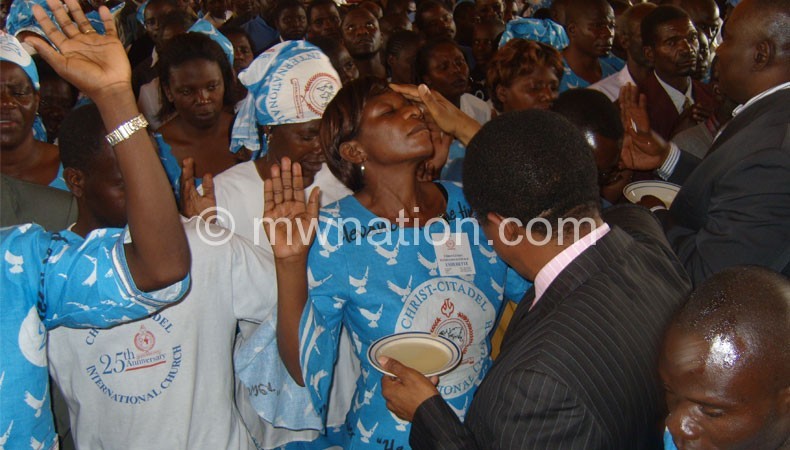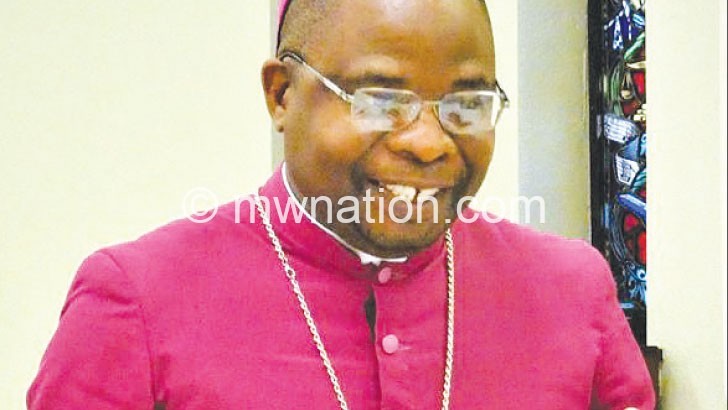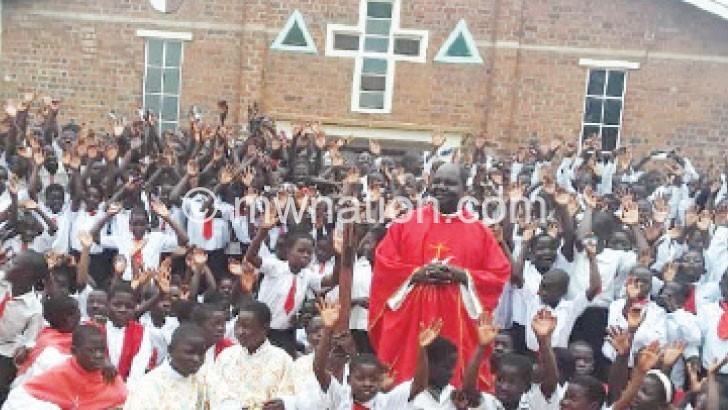Has Pentecostalism affected conventional churches?
Until the return of multiparty democracy in 1992, believers were confined to being Catholic, Evangelical or Protestant Churches such as the Church of Central African Presbyterian (CCAP).
Islam was an alternative faith, but mainly existed in cities and towns, with businesspersons of Indian origin forming most of its membership.

Most Malawians had no or very little knowledge about the existence of Pentecostal and Charismatic movements.
Thus, with little or no competition at all, conventional churches established themselves.
Without any form of persuasion, converts chose which church or faith to belong to, such that when the wind of Pentecostalism started blowing, some people rashly dismissed it as merely ephemeral.
However, such opinions seem to have been misconceived because Pentecostal churches have persisted and continue to increase in number and size.
The terminology used to describe Pentecostal churches has over the years varied owing to the various views, which people have about the movement from their inception.
Among the first terms used were schismatic movements, break-away groups and separatist churches.
Most of the early terminology were used to denote the fact that Pentecostal churches are in most cases the outcome of a separation of groups or members from the orthodox or mainline churches such as the Roman Catholic, Anglican, Presbyterian, Methodist and Baptist churches; hence, one of the most widely used of all the terms is separatist churches.
But with passing on of time and better understanding, people’s opinions about Pentecostalism began to change and there came such more positive terms for Pentecostal churches as prophetic, charismatic, healing, spiritual and finally Pentecostal.
But unlike traditional churches, Pentecostals are notorious for their rather aggressive forms of evangelism and proselytism.
Head of the Episcopal Conference of Malawi (ECM) Bishop Joseph Zuza admitted that the proliferation of the charismatic and Pentecostal movements has negatively impacted the Catholic Church.
Zuza said the Catholic membership is declining as some Christians leave to join Pentecostal and charismatic movements.
He was, however, not aware about what might be driving their followers into joining these movements.
“Honestly, I wouldn’t know. But possibly, people are persuaded by the instant, but illusive solutions Pentecostalism seems to offer to their social and economic problems. I’m saying illusive solutions because some have returned with regrets,” he suggested.
Zuza observed that reasons behind the phenomenal growth of Pentecostalism in the contemporary Malawian society should be sought for outside doctrinal domain, arguing this growth is not based on biblical doctrine, but rather search for positions and prosperity.
“For, in many respects, Pentecostal churches fall short of the biblical principles and practices of church growth,” he said.
His views are shared by the Seventh-Day Adventist (SDA) Church.
Responding to an emailed questionnaire, Malawi Union of SDA Church stewardship and trust services director Pastor Dennis Matekenya, said Pentecostalism appears to be offering ‘something not clearly visible in conventional churches’.
Matekenya said, for instance, the prosperity gospel, which is heavily emphasised in the Pentecostal and charismatic movements is not given similar prominence in conventional churches.
“Therefore, with poverty levels in Malawi, you can understand that such an approach would easily resonate with the populace almost instantly. But as SDA Church, we believe that God has promised wealth and prosperity to all who believe and are obedient to Him according to Malachi 3:10-12,” he explained.





